We may earn income from links in this post. Please read this Disclosure for details.
Wondering if there are mosquitos in Cancun and other popular sun destinations in Mexico, the Caribbean and Latin America?
You’re not alone! Not only are mosquitos annoying but there’s also a growing risk of mosquito-borne viruses such as dengue fever, West Nile, chikungunya, zika and more.
I’ve spent a lot of time in Cancun (and am a natural mosquito-magnet) so this guide will help you prepare for your vacation in Cancun.
By understanding as much as you can about mosquito season, mosquito-borne diseases and the best insect repellent, you can reduce the likelihood of getting bitten by mosquitos.
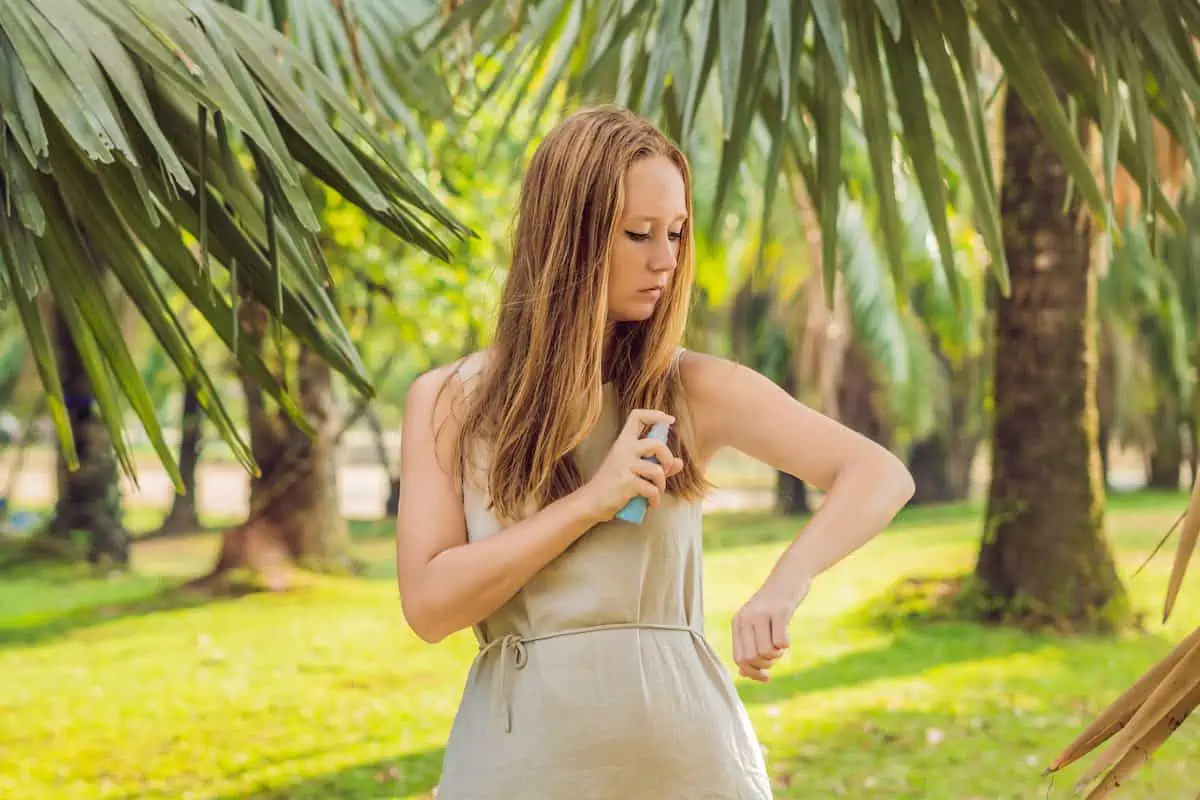
Several years ago I had dengue fever. It was one of the worst medical emergencies I have ever faced on my travels to more than 60 countries.
Not only was dengue painful (headache, bone-breaking joint pain, a hemorrhagic fever that led to bleeding from my eyes like a scene from the film ‘Outbreak’) but the long term effects such as hair loss weren’t pretty either.
Now I take extra precautions to avoid getting bitten by mosquitos. And even though I still spend months in Oaxaca, Mexico and Guatemala, both known hot spots for dengue, I haven’t had a mosquito-borne virus since.
I’m also rarely bitten by mosquitos.
This guide contains my tips as well as those from experts such as the CDC and WHO that will help you avoid getting bitten by mosquitos in Cancun, Florida and many other tropical and sub-tropical destinations.
By preparing in advance, you too can minimize the likelihood of catching a mosquito-born virus. And avoid the discomfort of being bitten by mosquitos in general.
Where Are You at Risk?
Travellers who go to Africa, Asia, Mexico, Central and South America, and islands in the Indian Ocean, Western and South Pacific, and Caribbean can be at risk of dengue, chikungunya and/or zika.
In Central America, the countries of Guatemala, Honduras and El Salvador often report outbreaks of mosquito-borne viruses.
While dengue fever is rare in southern Europe, you can get West Nile disease in Greece and Italy as well as in Canada and the United States!
So it’s well worth learning how to avoid mosquito bites in general.
Mosquitos in Mexico
Although dengue has been reported in 28 of 32 of Mexico’s states, the hotspots for dengue (and other mosquito-borne viruses) have historically been the states of Chiapas, Guerrero, Morelos, Oaxaca (including Puerto Escondido and Mazunte), Tabasco and Yucatan.
However, according to a recent study of severe dengue in Mexico by the journal Ecological Informatics, the severity of dengue is increasing and it’s becoming more widespread.
Just last year there was a major outbreak of dengue in Puerto Vallarta in the state of Jalisco.
And in spring 2023, Mexico’s Federal Ministry of Health reported 802 confirmed cases of dengue in Quintana Roo, home to Cancun, Playa del Carmen and Tulum.
That’s 400% higher than the number in the Yucatan!
Mosquitos in Cancun

If you’re travelling to Mexico and wondering if there are mosquitos in Cancun, the answer is yes.
Should you be worried? The answer is there’s no reason to panic. Instead, be prepared.
In addition to the growing trend upward in dengue mosquitoes, many travellers are venturing away from the beaches due to sargassum seaweed in Cancun.
They’re spending more time in rural areas where mosquito eradication measures aren’t as rigorous as they are at Cancun Riviera Maya’s all-inclusive resorts.
Participating in outdoor adventures such as an ATV Jungle Tour with Ziplining, hiking in the jungle and swimming in the cenotes of the Yucatan Peninsula means you’re likely to be exposed to more mosquitos (known as zancudos in Latin America) than at a day by the swimming pool.
Other places you can expect to see mosquitos in Cancun include:
- Zona Arqueológica de San Miguelito (adjacent to the Museo de Cancun),
- Nichupté Lagoon (between the Hotel Zone and downtown Cancun),
- Eco-park attractions such as Xoximilco, Xenses and Xavage by Grupo Xcaret,
- Many budget hotels in Cancun don’t have screens so it’s important to be prepared.
How Do You Get Infected by Dengue, Chikungunya and Zika?
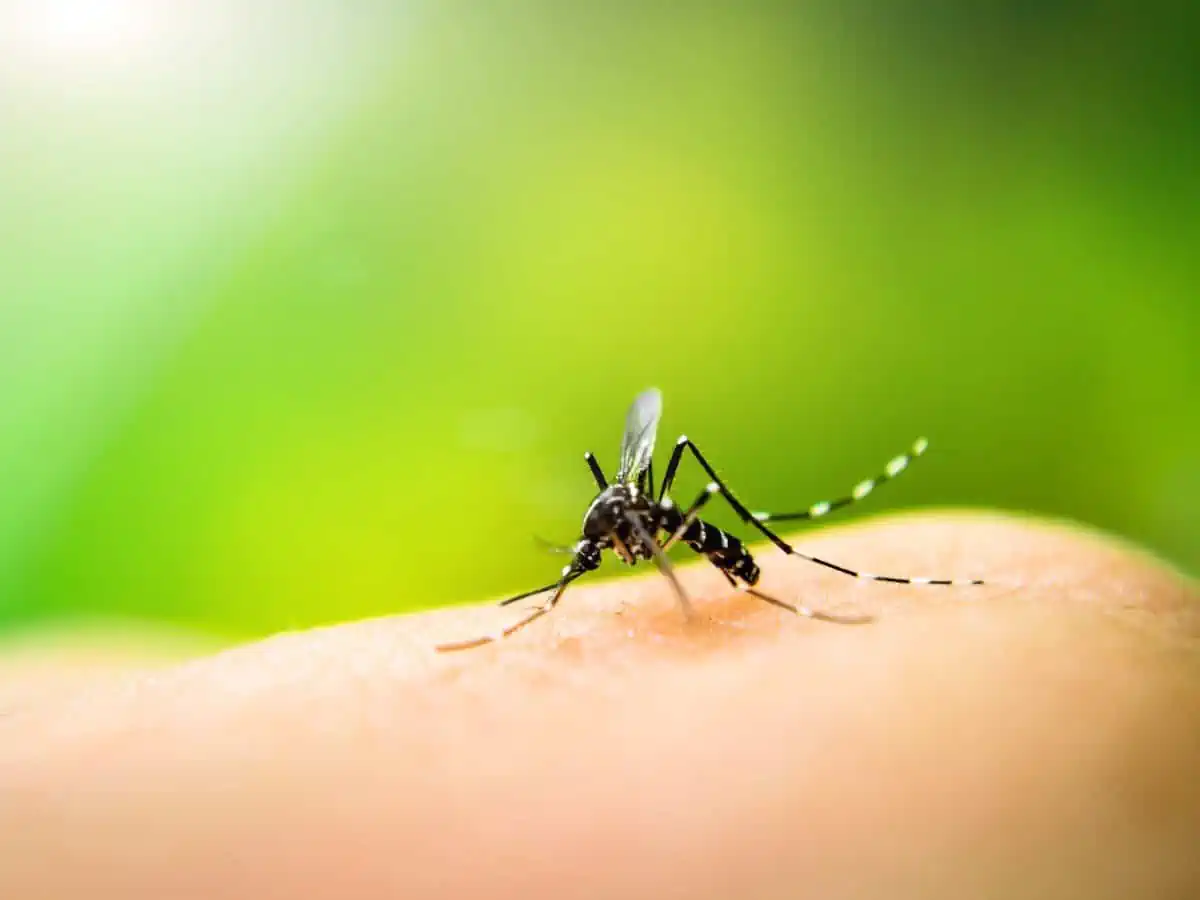
What is chikungunya? It’s a mosquito-borne virus transmitted to humans through the bites of infected mosquitoes, primarily the Aedes aegypti and Aedes albopictus mosquito.
Unlike dengue (which can sometimes be fatal) or zika virus (which causes birth defects) caused by the same kind of mosquito, chikungunya (pronounced chik-en-gun-ye) is usually not fatal.
But it causes severe fevers, headache and joint pain that can be debilitating. Side effects can linger for months.
There is no vaccine or cure.
The best way to avoid contracting these mosquito-borne viruses is to avoid getting bitten by mosquitos at all.
The CDC has some excellent Tips on Avoiding Dengue by Preventing Mosquito Bites but check out my dengue virus prevention tips below.
Who is Most at Risk?
Are you a mosquito-magnet? Do other people never seem to get bitten yet you come home covered in welts?
You’re not alone.
Science has proven that 20% of the population is more attractive to mosquitos than others. This includes people with Type O blood, beer-drinkers, females and other more mysterious factors.
According to the American Mosquito Control Organization, carbon dioxide is the most universally recognized mosquito attractant. Just breathing is enough to attract mosquitos.
The CDC advises travellers in high-risk groups to discuss travel plans with their health care provider.
High-risk groups include the following:
- People who have arthritis,
- People with serious underlying medical conditions (such as high blood pressure, heart disease, or diabetes),
- People older than 65,
- Pregnant women who are late in their pregnancies, because of the risk to babies born at the time their mother is sick,
- Long-term travellers, including missionaries and humanitarian aid workers and people visiting friends and relatives,
- People who might have difficulty avoiding mosquito bites. That includes those planning to spend a lot of time outdoors and those staying in rooms without window screens or air conditioning.
Mosquito Season in Cancun, Mexico and the Caribbean
Mosquito season in Cancun coincides with the rainy season which hits its peak from May to October when there’s the most rainfall.
However, it’s still possible to get bitten by mosquitos outside of the rainy season. Mosquitos including the virus-transmitting Aedes aegypti and Aedes albopictus mosquitoes are active year-round.
So while there’s more rainfall in Cancun in January (average rainfall of 4.1 inches) compared to March (average rainfall of 1.8 inches), there are mosquitos in Cancun in March.
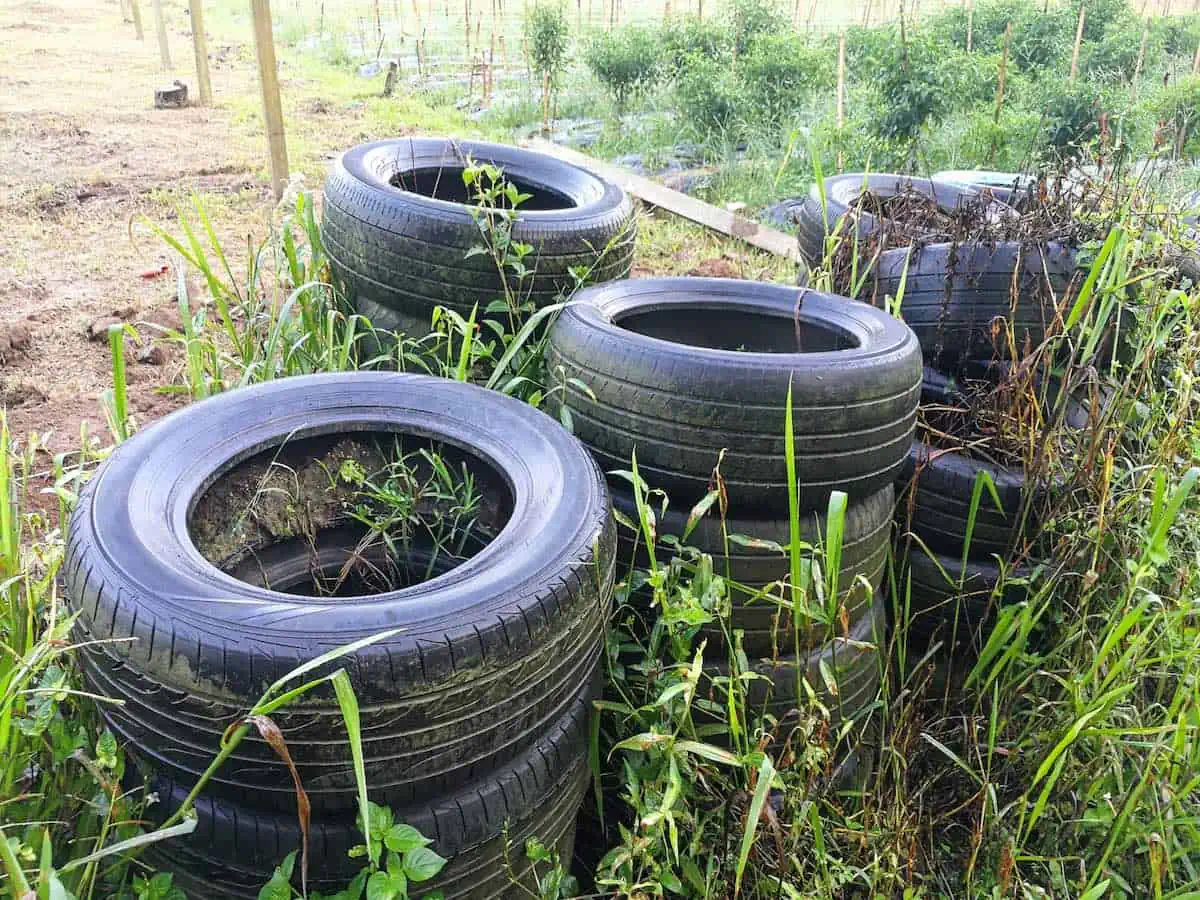
Much depends on eradication efforts by resorts, residents and local authorities. These include:
- Education campaigns to teach the public to remove stagnant water around their homes. Discarded tires, rain barrels, fountains and even flower pots are a prime breeding ground for dengue mosquitos.
- Many resorts and municipalities fog for mosquitos. This helps reduce clusters of mosquitos.
- The dengue mosquito does not lay its eggs in marshes, ditches, mangroves or wetlands. They lay their eggs on the walls of containers on patios in households, hotels and other urban environments.
How to Protect Yourself from Mosquito Bites
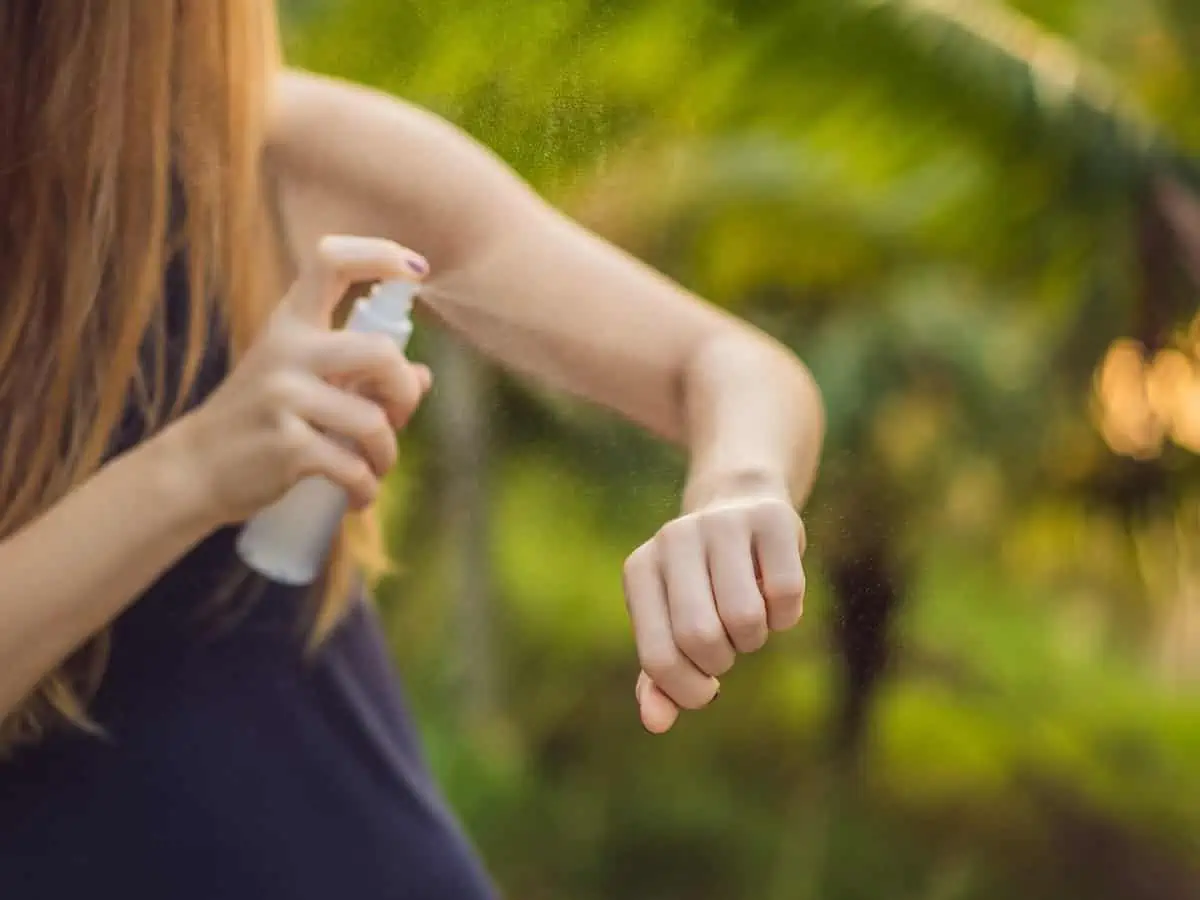
1. Wear Long-sleeved Clothing
Wear long sleeved shirts and long pants, preferably light-coloured. It may seem strange to be wearing pants or long sleeves when its 40C but at least your skin will be protected.
If you’re headed to a beach resort and want to look more stylish, one of the best travel clothes for women is a beach sarong wraps with insect repellent woven right into the fabric.
2. Stay in a Hotel Room on the 5th Floor or Higher
One way to reduce the likelihood of getting bitten by mosquitos in Cancun is to book at a room on an upper floor or a hotel or resort.
Hotel rooms at ground level tend to have more insects than those on the second floor or higher. Dengue mosquitos prefer to fly at knee level which means you’ll find more mosquitos at lower levels than at higher.
Many experts, including the American Mosquito Control Organization, report that mosquitos prefer to fly at levels below 25 feet. And that the Aedes aegypti mosquito can fly no higher than 50 feet.
This suggests that staying above the 5th or 6th floor of a hotel should place you in safe territory.
Book one of the upper floor suites at 28-storey high Secrets The Vine Cancun and you’re likely well out of the flying range of even the most determined mosquito.
3. Choose Accommodation with Air Conditioning and Screens
While every mid-range to luxury hotel in Cancun will have air conditioning, that may not be the case with AirBnB, long term or budget hotels and rentals.
Not all windows will be equipped with screens. And it’s not unusual for screens to be loose or missing.
When planning a vacation in a semi tropical or tropical climate, always check to see if screens and AC are provided before booking.
4. Eliminate Breeding Spots for Mosquitos
Mosquito eggs hatch when in contact with water.
If you’re staying with family or have any control over your surroundings such as a long-term vacation rental, eliminate (or disinfect) standing water in receptacles such as pails, flower pots on patios, buckets, old tires etc.
5. Be Prepared for Day-Biting Mosquitos
The Aedes aegypti mosquito is a day-biting, urban mosquito. The World Health Organization (WHO) advises that this type of mosquito usually rests indoors in dark corners, under beds and behind curtains.
This means you can get bitten while lounging in your living room, hanging out at a cafe at noon or even downward-dogging it in yoga class.
Don’t think you’re only at risk of getting mosquito bites when you’re in the jungle or remote areas.
6. Pack Duct Tape
I always travel with a roll of duct tape and use it to seal large gaps in doors or windows. Admittedly this can be a rather time-consuming and noisy task with all that ripping sound of tape.
But there’s something satisfying about waking up in the morning and seeing all those insects trapped on the outside of the door.
Just think of all the bites you avoided!
Try to choose a duct tape that leaves no gummy residue. Painter’s tape also works pretty well for short-term protection.
7. Purchase a Plug-in Insect Repellent
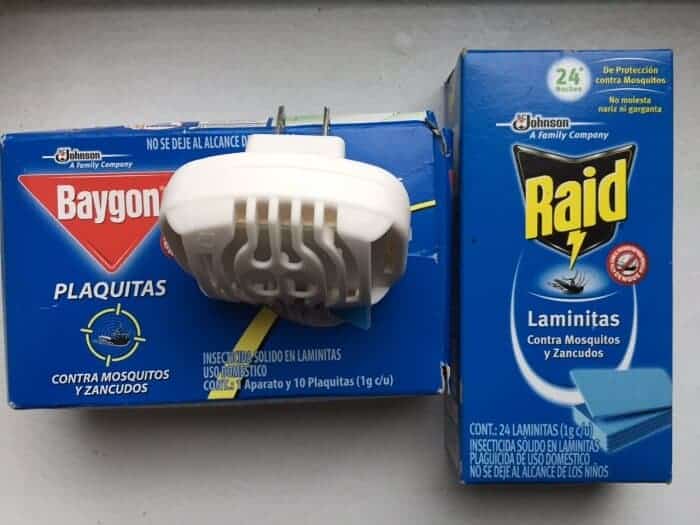
When you arrive at your destination, head to a supermarket like Walmart or Chedraui and purchase a box of Raid Laminitas. In Mexico, one box costs less than $10 and will last for several weeks.
Use laminitas like an air freshener. Just insert the blue pad inside the device, plug it into an electric outlet and leave the room for 30 minutes. When you return, the mosquitos will be gone.
The laminitas also get rid of tiny gnats which, although not dangerous, can cause annoying welts and intense itching. The instructions say you can leave laminitas plugged in all night but I probably wouldn’t do that if you have asthma or other respiratory issues.
There are also precautions against using Laminitas in rooms where small children and/or elderly will be sleeping.
8. Buy Insect Repellent with DEET
To avoid mosquito bites from the virus-carrying Aedes aegypti mosquito, the best bug spray for Cancun contains N,N-diethyl-3-methylbenzamide DEET. This isn’t the time to use gentle natural bug sprays.
DEET-based repellents come in concentrations ranging from 5% to 100%. Their effectiveness lasts from 90 minutes to 10 hours. The CDC also recommends repellent containing picaridin.
Although you’re not allowed to take aerosol cans on airplanes, purchase the small purse or pocket-sized pump bottles, cream or towelettes at your local pharmacy (or online) and take them in your carry-on bag.
Apply repellent as soon as you arrive. You’ll often encounter mosquitos at airports or enroute to your hotel. Read about the 10 Best Insect Repellents.
9. Request a Fan at Your Hotel
Once at your hotel, request a portable fan for your room and direct the air flow towards yourself, your bed or patio.
You can also purchase a battery-powered portable fan to use at outdoor restaurants.
10. Use a Mosquito Net at Night
Use a mosquito net if there is one. If not, you can always purchase a traveller’s bed net and take it with you.
The portable mosquito nets come with an adjustable string and a ring to attach to the ceiling.
11. Pack Acetaminophen (Tylenol) not Aspirin or Ibuprofen
If you do have the misfortunate of getting dengue virus, acetaminophen is the recommended pain medication to take. I didn’t know that.
So when I got hit with dengue I began dosing myself with aspirin and this caused added complications. If you suspect you have dengue, see a doctor immediately.
12. Wear Insect Repellent Clothing
Treat your clothing or purchase clothing pretreated with Permethrin.It’s as effective as 100 percent DEET and not only repels insects, it actually kills ticks, mosquitoes, chiggers, mites, and more than 55 other kinds of insects on contact.
The active ingredient Permethrin is a synthetic molecule similar to pyrethrum which is taken from the Chrysanthemum flower.
A single application lasts six washings or 42 days of sun exposure. Do not use the solution on your skin.
13. Boost Your Vitamin B Intake
Some people find that taking vitamin B supplements helps protect against mosquito bites. Vitamin B patches provide a steady dose of vitamin B1 or thiamine for 36 hours.
The belief is that the patch alters blood chemistry and human smell making the wearer less attractive to mosquitoes.
Research published by the Journal of Insect Science comparing the effectiveness of insect repellents reported that the Mosquito Skin Patch containing vitamin B1 did not reduce attraction rates.
14. Try Citronella Candles, Avon Skin So Soft and Clip-on Devices
You can also take a multi-pronged approach for preventing mosquito bites by using brands offering several complementary mosquito deterrent products such as Avon Skin So Soft lotion.
Some people rely on insect repellent bracelets of clip-on devices to wear as extra protection.
It’s worth reading the Journal of Insect Science’s detailed analysis (noted above) of these methods.
According to Health Canada, products such as electrocuting devices and ultrasonic devices are NOT recommended since they may not be very effective or long-lasting.
How to Get Relief from Itching?
If you do happen to get bitten by a mosquito on your Cancun vacation and the itch just won’t go away, it’s worth looking into the Zap Ease product.
It’s recommended by several medical authorities as way to reduce itching from mosquito bites as it sends a small electrical impulse which inhibits histamine release and itching.
Check out this review of Zap Ease as well as several products for preventing mosquito bites.
Note: The above information is no substitute for medical advice! Seek medical attention immediately if you feel ill when travelling or upon return from international travel.
Your best bet is to look for an infectious disease specialist.
It’s also important to have travel insurance in case you do get sick.
This post was originally published in 2015 and was updated substantially in 2023.
FAQs
Dengue is most common in the states of Chiapas, Oaxaca, Veracruz, Guerrero, Morelos and Yucatan, Mexico. But dengue fever can also be found in Quintana Roo, home to Cancun, Playa del Carmen and Tulum.
Yes, you need mosquito repellent in Cancun. It is a tropical climate so there are mosquitos. Wear long-sleeved shirts and pants, and a hat if you’re planning to spend time outdoors or leave the resort.
If you’re visiting Cancun in the rainy season you’ll encounter more mosquitos than during the dry season. It’s more humid and there’s more water, ideal conditions for breeding mosquitos.
More Cancun Vacation Tips and Inspiration
Save to Pinterest!
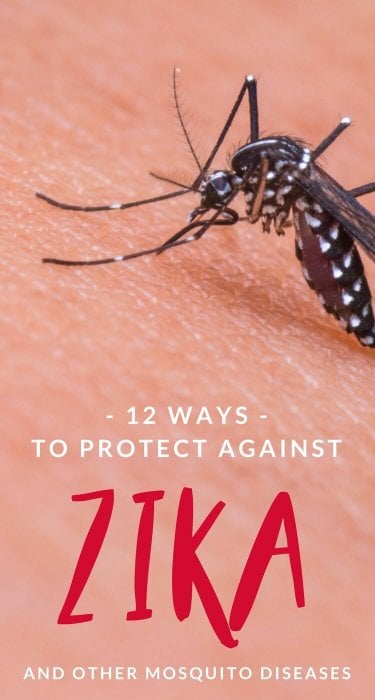

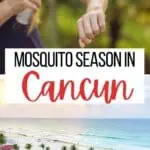

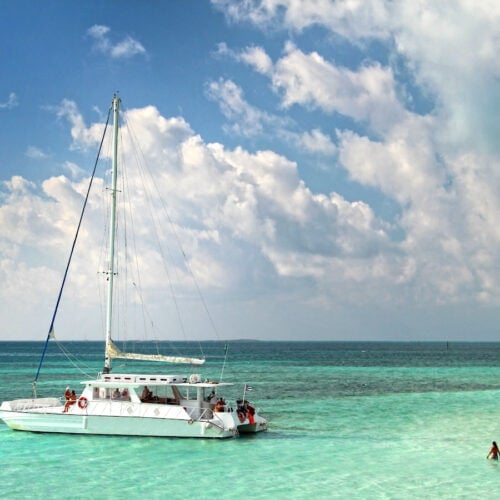

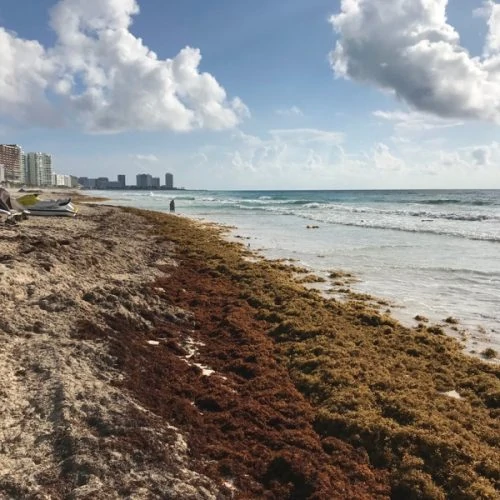
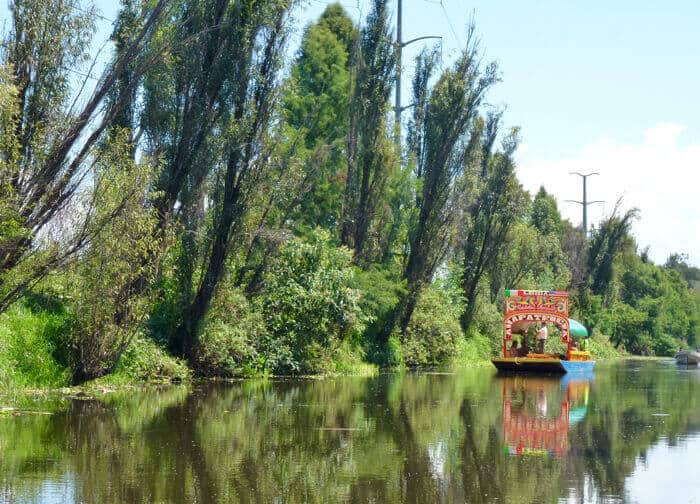 3 Best Xochimilco Tours in Mexico City (in 2024)
3 Best Xochimilco Tours in Mexico City (in 2024)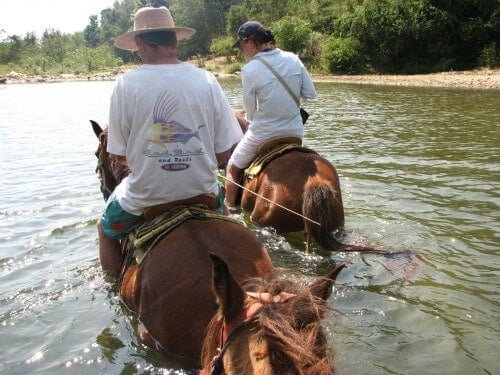
Yadi
OMG Now I am sooo scared. I am traveling with my entire family, 4 kids ages 3 months to 11 years due to a special circumstances and I am woried for the kids. I can’t imagine them having to suffer the side effects of mosquito bites and let alone one of these viruses. I had only planned for bracelet repellent and spray OFF but now will try to grab a few of the items mentioned. I almost wish I didn’t have these plans with the little ones.
Michele Peterson
Many thanks for your comments. It’s worth checking with a doctor or medical professional to see if there are any other effective repellents that can be used on infants and small children as I understand that products with DEET shouldn’t be used. Protective measures such as mosquito nets and clothing can help though. Safe travels!
Doreen Pendgracs
Terrific post, Michele. I learned a lot about mosquito protection and bite prevention.
Michele {Malaysian Meanders}
Great advice. I’ve had Chikungunya, and it was HORRIBLE. It really knocked me out, the rash from bursting blood vessels hurt whenever I tried to use my hands, and I ached soooo much. Luckily, I’ve read that once you get it, you’re immune for the rest of your life. Where I lived in Malaysia was also have a dengue problem at the time, so they initially diagnosed me as having hemorrhagic dengue. The chikungunya diagnosis was actually a relief.
Michele Peterson
That’s horrible! It sounds like you really suffered. Glad to hear you finally did recover!
Patti Morrow
Thanks for the tips on how to avoid the chikungunya virus. Mosquitos love me for some reason, so I have to take extra precautions because I frequently travel to tropical destinations.
Sue Reddel
As someone who travels regularly with a partner who not only attracts mosquitos but is highly allergic. She’s in that 20%. We’ve used all your recommendations except the duct tape, which is brilliant. We’ve stuffed towels under the door frame which is usually has a big gap. And you’re right I survived a week in Cuba with no bites and got two bites in the airport on the way out. Go figure.
Nathalie
Great, useful post on how to protect yourself from a virus most people don’t know about, including me! Thanks.
Patrice Perillie
HI Michele, check out this website http://www.macmed.com to order a very effective herbal preventative and remedy for chickunguya being produced in Puerto from the leaves of 5 local trees. Stay healthy and happy!
Michele Peterson
Thanks Patrice! I’ll check it out. I wonder what trees it’s made from? I wish I could get it before my trip to Guatemala!
Nancie
I’m one of the lucky ones that mosquitoes, for the most part, leave alone. When I went into the jungle in Borneo I slathered myself with lotion version of OFF. I was the only one in my group who left the jungle with virtually no bites.